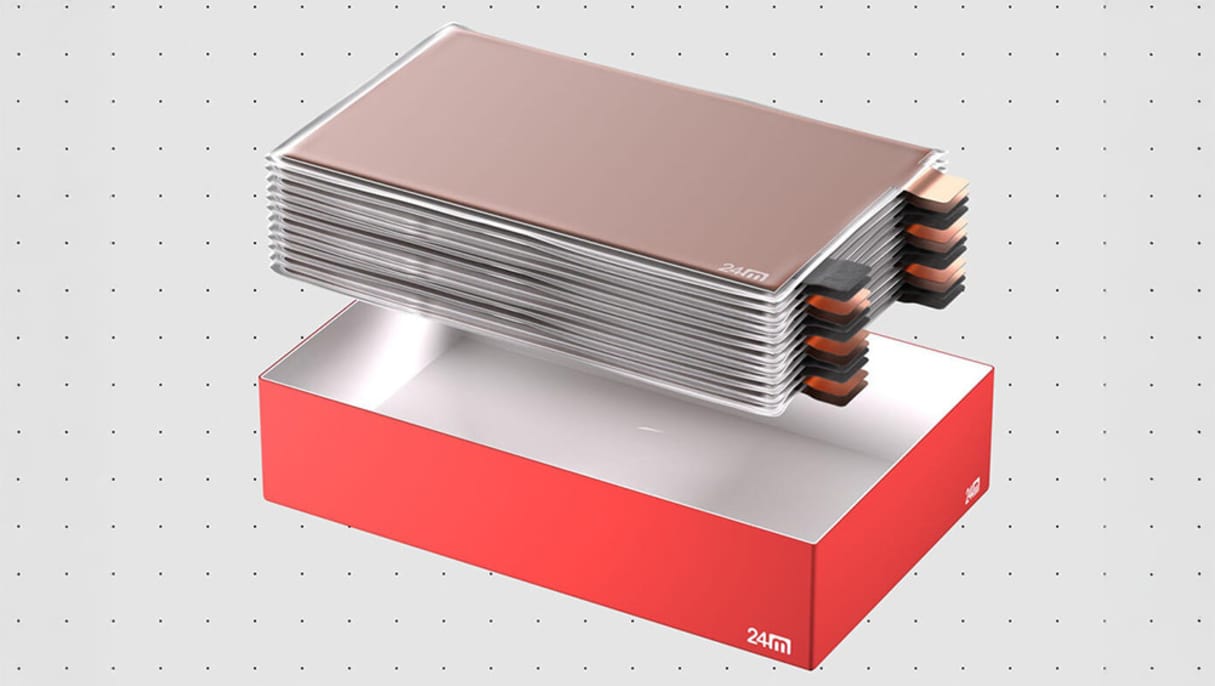US battery companies are powering up.
China leads the world in new electric vehicle batteries, but a US company is preparing to “leapfrog Asian counterparts”.
US company 24M has revealed details of its new battery, which packs in 50 per cent more energy than conventional cells.
24M said its new cells deliver unmatched energy density and range, with claims it can build batteries with more than 1600km of driving range.
This is done via a new construction that does away with the conventional cell and module structure of a battery.
The company claims it has created a sealed anode/cathode pair that is integrated directly into the battery pack, eliminating the need for individual cells, modules and unnecessary materials.
It claims this allows it to have a higher percentage of electrodes, which is the part of the battery that stores energy, than other batteries.
24M claims its batteries’ electrode content can be up to 80 per cent, while others are usually between 30 and 60 per cent.
The company said the construction can be applied to batteries of any chemistry, which includes conventional Nickel-Manganese-Cobalt (NMC) and Lithium-Ferro-Phosphate (LFP) EV batteries.

It said this would allow battery makers to apply the energy boosting method at scale at relatively low cost.
The company’s boss Naoki Ota said: “The pressure to compete on price, design and performance is mounting for American industries that are heavily reliant on imported batteries.”
“The US must advance battery innovation, not just scale production to close the gap with competitors overseas. Our 24M ETOP offers US manufacturers the technology they need to leapfrog Asian counterparts with industry-leading energy density, first-of-its-kind design flexibility, and lower manufacturing costs.”
There has been a lot of noise in the electric vehicle battery field recently.
Multiple vehicle and battery manufacturers are working on solid state units.
Solid-state batteries use a solid electrolyte to transfer energy compared to a liquid or gel used in conventional batteries.
This makes them more energy-dense, therefore smaller, and less prone to fire than current batteries.
Many claim this new cell will be a silver bullet to mass EV adoption and will make electric sports cars, 4WDs and utes a practical reality.
Sodium-ion batteries are also on the rise with makers claiming they are much cheaper to build, work better in extreme temperatures and can deliver driving ranges of about 500km.
None of these new battery types are currently offered in new cars yet.






.jpg)


.jpg)




.jpg)
.jpg)



_0.jpg)
.jpg)



_0.jpg)
.jpg)



.jpg)